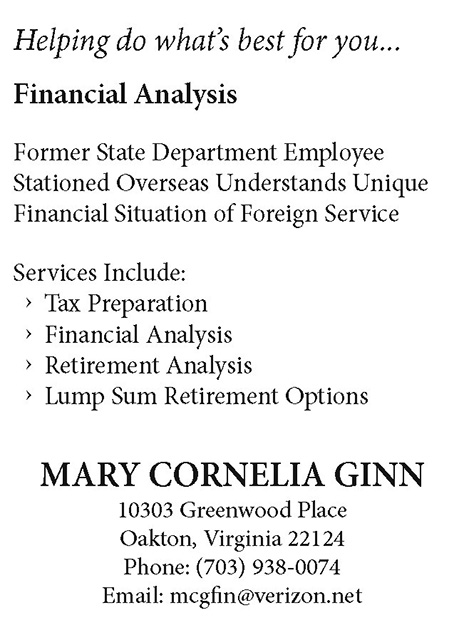Notes to the New Administration
Following the U.S. presidential election and by way of welcoming the new administration, The Foreign Service Journal invited Foreign Service members to share their suggestions for how diplomacy and development practitioners can best serve and advance America’s foreign policy interests during the coming months and years.
In December AFSAnets, we asked for concise answers to these questions: “How can the new administration reinvigorate U.S. diplomacy and development through the Foreign Service, and what are your specific recommendations?” The response was tremendous.
Here, presented alphabetically by the author’s last name, are suggestions we received from active-duty and retired members of the U.S. Foreign Service. The authors’ views are their own and do not necessarily reflect those of the Journal and the American Foreign Service Association.
Our thanks to all who contributed to this compilation.
—The Editors
Look to What We Have in Common
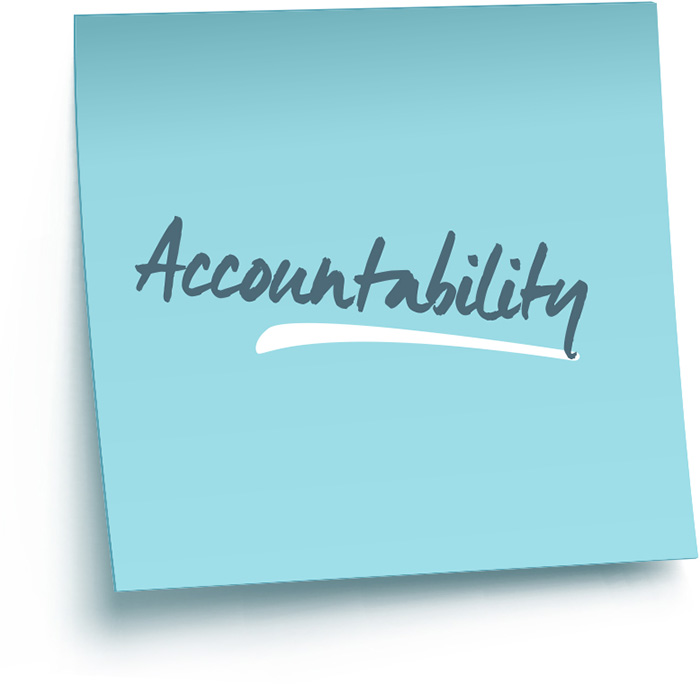
Sometimes it takes a global pandemic to remind us how much we have in common rather than spending time, energy and resources on all that (we think) divides us. Our humanity, both its physical vulnerability to viruses like COVID-19, as well as the strength of the human spirit that binds us to one another and the natural world, should be a core part of our foreign policy.
For most of our history, American values have been synonymous with freedom, democracy and the promotion of human rights. It’s time to remind the world of this, and we have many foreign affairs agencies and dedicated employees ready to sharpen the tools at their disposal.
Filling leadership positions with official and confirmed appointees is, of course, the first step. In this we should favor career employees (over political appointees), showcasing their well-earned experience and knowledge and discrediting the “Deep State” conspiracies.
Second, we must continue to diversify our personnel, at all levels and in all agencies. The strength of our “melting pot” is another American value that needs reviving. But rather than focus on recruitment, we must also invest in retention and promotion of minorities. This may require significant organizational changes, and for that we may need to dig deep.
Last, the new administration should give careful consideration to greater use of soft power. We need to invest more in tools such as educational and cultural programs, the use of social media at the local level and foreign aid if we wish to not only regain our international stature but also compete with rival nations, including China and Russia.
Initiate a Top-Down Mandate on Compassion
I believe the new administration has an opportunity to reinvigorate U.S. diplomacy by injecting constructive kindness into the Foreign Service Institute’s consular training courses and thereby into each nonimmigrant and immigrant visa interview globally.
On balance, visa officers set the community tone at any given post for thousands of foreign nationals each day. The sheer volume of interactions provides visa officers with a unique opportunity to bolster host-nation trust, promote American hospitality and preserve international civility.
Rapid-fire visa interviews instill fear, distress and despair in the majority of applicants. The consequence of 60-second interviews (the cornerstone of efficient “visa mills”) conducted by exhausted consular officers during an insensitive administration could well be the reduction or even the annihilation of an applicant’s dignity.
I believe that the new administration should initiate a top-down mandate on compassion, championed and promoted by the Secretary to help capitalize on the considerable diplomatic value of concerted graciousness through consular work.
While I cannot recall more than a handful of the approximately 50,000 nonimmigrant and immigrant interviews I have conducted, I suspect that each of the 50,000 applicants can recall me. For many, especially those from rural villages and with little knowledge of the English language, I was likely the first American they met and possibly the only American they may ever speak to. And I hope that—with or without a visa—each thinks of the United States kindly.
Get the State-Defense Relationship Right
There is no better U.S. government partner for the Foreign Service than the military in reinvigorating U.S. diplomacy and development.
Getting the State-Defense relationship right starts in the field, where U.S. embassies and combatant commands can share assessments, plans and activities. Cooperation between Foreign Service and Special Operations Forces personnel can provide useful pilot programs and lessons learned to build and deepen solid synergies and results. Initial focal points could include the following.
Ending forever wars by finding ways (in the words of then candidate Joe Biden last March) to “be strong and smart at the same time.” We can be strong in Afghanistan, Iraq and elsewhere through credible diplomacy and precise special operations. We can be smart by encouraging FS-SOF teams to design more coherent solutions that secure ever-stronger support from host countries.
Countering competitors by using FS-SOF cooperation to deter U.S. adversaries and competitors for regional and global influence. Adversaries such as China, Russia, Iran and North Korea cannot compete with the advantages of U.S. diplomatic and military professionalism and innovation. At the same time, successful FS-SOF work against nonstate actors sets useful terms for stable and fair economic and other competition, and strong potential exists for similar results against state actors.
Reimagining friendships by deepening and expanding past FS-SOF successes with allies, friends and partners to build solidarity and increase coordination. Shared and complementary dialogues, training and actions can yield new access in host countries, including access to military medical and logistical expertise against COVID-19 and activities monitoring and improving sanctions enforcement.
Getting resources right by building off the shared FS-SOF truth that “humans are more important than hardware.” For example, a $13 billion increase to the State budget could be justified as another national security “enabler,” citing that the Department of Defense spends a similar amount on Special Operations Forces. The same $13 billion equals roughly 2 percent of DOD’s FY2021 budget, a seemingly appropriate amount to help ensure a successful transition from “forever wars” to “sustainable peace.”
Address the Refugee Crisis and U.S. Visa Policy
More than 80 million refugees and displaced persons inhabit our planet, and that number grows daily. The United States must regain its position as the leader in alleviating this crisis.
Third-country resettlement can at best accommodate a small portion of these people, but the United States has shamefully reduced the number of refugees we have welcomed to our shores. We should increase the number we are willing to accept to at least 100,000.
More important than resettlement is the protection of vulnerable refugees living in appalling conditions, while inspiring other nations to do the same. The greatest challenge will be cajoling the “sending” countries to alleviate the factors that cause people to flee. That would mean fighting corruption, striving for good governance and promoting education, health and opportunities for people to make an honorable living in their home countries.
The message from the new administration should include that refugees have historically contributed to the well-being of our nation enormously, and the programs we participate in abroad to make the sending countries less repressive contribute to our security and long-term economic growth.
In the past we have worked closely with like-minded nations to resolve refugee crises, and should do so again. Support of the United Nations High Commissioner for Refugees, World Health Organization and other international entities long involved in this challenge is necessary.
In addition, it is universally acknowledged that the existing U.S. visa regime needs a comprehensive overhaul. However, the following immediate fixes can be made without legislation:
• Reinvigorate DACA (Deferred Action for Childhood Arrivals).
• Remove the ethnic, religious and geographic limitations created by false claims that they strengthen national security.
• End the crippling of our academic institutions and the richness of student life by returning to the student and exchange visitor visa policies of an earlier era.
• Continue the statutory requirement that immigrants establish that they will not become a public charge, but remove some of the factors recently added administratively to that calculation.
• Strengthen the anti-fraud aspects of visa considerations to include increased, meaningful cooperation between State and Homeland Security officers involved in the process.
Strengthen the OIG and Professional Education
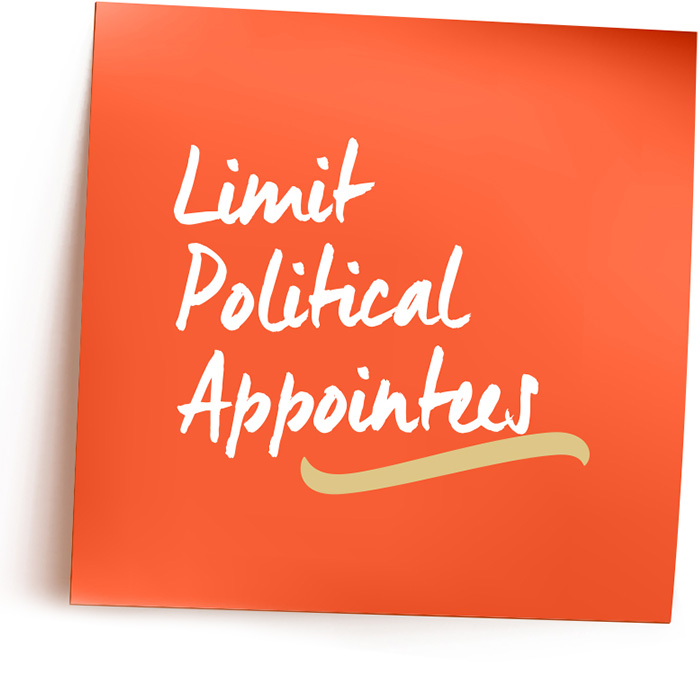
First, rebuild and fully staff the State Department Office of the Inspector General, which was marginalized under the Trump administration. In May 2020, State’s capable inspector general, in office since 2013, was fired.
Since 2017, inspections of U.S. embassies overseas and bureaus in the department, for decades the core function of the State OIG, have been reduced to a minimum, their place largely taken by audits of ancillary functions (e.g., “Audit of the Bureau of Overseas Buildings Operations Process To Execute Construction Closeout Procedures for Selected Capital Construction Projects,” 9/22/20).
Second, relaunch the Senior Seminar and generally enhance the role of professional education for Foreign Service officers, as advocated by former Secretary of State George Shultz in his eloquent commentary in the November 2020 Foreign Service Journal.
“My sense is that incoming members of the U.S. Foreign Service should be required to participate in a full academic year of professional education at the National Foreign Affairs Training Center. There might be a distinct part of the center that could be called ‘The School of Diplomacy.’ A diverse group of future American diplomats would benefit, I think, from the integrating effects of a common learning experience,” Secretary Shultz writes in the Journal.
“That said,” Shultz continues, “there should also be separate courses in area studies and languages. The common program should include a feature pioneered by the now defunct Senior Seminar, a course that gave diplomats an introduction to various slices of American life. Personally, I would like to see the common course include case studies in diplomacy and many opportunities for extended talks with senior American diplomats and with those of other nations, too. As a former teacher myself, of course I have an interest in curriculum, and so I would be pleased to meet with people who are giving serious thought to what is suitable for today’s realities.”
Cap Political-Appointee Ambassadors
Make a public commitment that 85 percent of all ambassadors will be chosen from the career Foreign Service.
Continue to Build Out America’s Global Network
As the world becomes more complex with multiple political power poles, cross-country problems including climate change, political and economic inequality, and basics such as malnutrition that cripple minds as well as bodies, the U.S. government—USAID, in particular—needs to remain flexible and responsive. But it is the long-term vision and commitment that build the foundations of strong societies, not quick reaction.
To continue building a global network that strengthens our security and opens opportunities, we should:
• Maintain development agents separate from diplomacy and defense; each has a role, but they have different modes of working and different time horizons.
• Reinvest in basic and applied research addressing global and domestic issues—including in agriculture and health, effective pedagogy, digital economy and environment.
• Stretch to address what’s current: urbanization and its management; mental health and nutrition, the new keys to economic growth and stability; male disempowerment, as well as female; growing inequality in life choices.
• Rebuild competencies to design and implement sustained support programs that help countries follow their path to self-reliance.
• Continue to provide immediate and transitional humanitarian response—but ensure that quick response does not cut loose the foundational institutions and systems that build a solid future.
• Support countries all along the development continuum, tailoring dollars and programs to their need. In India $2 million of technical support can shape a $1 billion urban infrastructure investment, yet $90 billion of PEPFAR (the President’s Emergency Plan for AIDS Relief) funding was required to turn the tide on HIV/AIDS.
• Staff USAID and assistance agents based on technical and policy opportunities, not just the volume of dollars managed; let staff be influence-makers as well as contract managers.
• Use contemporary tools—culture, arts, sports, dance, graphic books, social media—to influence.
• Evaluate rules and regulations through a risk management lens; don’t compromise on-the-ground results.
• Recruit a new generation of bold thinkers, adventurers and visionaries, and give them room to explore.
Recapture Lost Institutional Memory
The basic rules of diplomacy have been disrespected during the past four years, but the greatest harm to the Foreign Service has been the loss of institutional memory.
Institutional memory functions on several levels. Take subject matter expertise, for example: The socioeconomic and political status of a country cannot be truly understood from briefs; it has to be lived and experienced firsthand by FSOs in the field.
Relationships are another critical aspect of institutional memory. Entry-level officers meet their counterparts at the beginning of their careers. They have dinner at each other’s houses, their kids play with the kids of their counterparts, and so on. Twenty years later, when the counterpart is a high-ranking official in the host-nation government, the FSO can return to that post and build on their early special relationships.
How to recapture this institutional memory?
• Rehire FSOs who were fired or forced into retirement across the board at all levels.
• Put in a firewall to protect career FSOs from in-house snitches, political manipulation, pressure and other demoralizing and destabilizing tactics that have been employed recently.
• Rescind promotions of any Foreign Service officers who were a party to the above tactics to advance their personal careers. They should not be rewarded ever again for this destructive, unbecoming behavior.
Nothing can replace institutional memory but the people holding the memory. This serious loss must be remedied to regain the United States’ role in the world.
Tips from the Engine Room

New (and returning) colleagues, welcome (back)! Transition season is upon us, and with it the quadrennial spate of news articles, think-tank studies, committee reports, op-eds and the like—each chock full of to-do lists for resuscitating the Department of State. Thank you for caring! Here are a couple of things to keep in mind.
An extraordinary reservoir of diverse talent already resides in the midlevels of the Foreign Service. We have honed our diplomatic skills for years and years—resolutely, patiently, under Democratic and Republican administrations—scoring foreign policy wins and securing U.S. interests in tough spots spanning the globe. Do not forget about us; we are your best asset.
While a few high-profile Foreign Service departees have eloquently described State’s shortcomings from their soapboxes, the rest of us—the engine of American diplomacy—have been busy in the field serving our nation day after day. Often operating with minimal resources and support, State’s frontline diplomats are the best at what we do—persuading foreign governments and audiences to do things and think in ways they otherwise would not.
State is undeniably a struggling organization as you arrive … but not only for the reasons you assume. Many of our most intractable institutional problems—aversity to risk, plodding action on attracting and retaining a diverse workforce, acceptance of mediocre leadership, focus on process instead of results, assignment and advancement systems that lack credibility and too often put the wrong people in the wrong places—pre-date 2017.
New initiatives and major reversals in the policy domain might help right the ship, but State will remain in long-term decline if you allow these organizational problems to continue festering.
Working on these unwieldy bureaucratic challenges behind the scenes might not offer the allure of globe-trotting diplomacy. Successfully doing so, however, will harness the full potential of our 75,000-employee-strong institution, especially our field-deployed Foreign Service personnel. Only then can State regain the ascendancy in formulating and executing U.S. foreign policy.
Recognize Family Members as Diplomacy Resource
We encourage the new administration to recognize an untapped source of “diplomats” in addition to members of the Foreign Service—namely, their family members.
It is important to gain a better understanding of the roles and achievements of diplomatic family members, ranging from bravery during crisis and long separations due to unaccompanied tours, to outstanding professional, artistic and volunteer achievements abroad. Many of them engage in significant voluntary efforts in their host countries, which promotes understanding among peoples, demonstrates the highest American values and advances the cause of U.S. diplomacy.
Since 1990, with the direct support of then–Secretary of State James Baker and Mrs. Susan Baker, the Associates of the American Foreign Service Worldwide (AAFSW) has managed the Secretary of State Awards for Outstanding Volunteerism Abroad (SOSA).
These awards are presented each year to volunteers abroad, one from each of the six geographic bureaus, for projects that demonstrate public diplomacy at the grassroots level and show Americans at their generous best, demonstrating outstanding creativity and commitment to improving the lives of others in our host nations. Such dedication is especially striking in countries where volunteerism is not common.
In May 2015, at the annual Chiefs of Mission Conference held in Washington, D.C., SOSA received official recognition as a diplomatic “tool” for the first time. The final communiqué stated: “Publicizing SOSA projects to host-country populations can further Public Diplomacy goals by fostering a positive image of Americans and helping illustrate to the world who we are as a nation.”
At this point in our nation’s history, we may need such publicity more than ever. Family members can contribute greatly to this positive image of our country.
Simplify EERs and Bidding
FSOs spend an enormous amount of time on employee evaluation reports (EERs)—easily 20 hours a year—and on bidding—easily another 40 hours a year. By simplifying those two processes, we can boost employee productivity and satisfaction while delivering more value to American taxpayers.
We should eliminate the current EER system, replacing it with an annual anonymous survey to all colleagues (peers, supervisees and managers) containing two questions: (1) On a scale of 1-10, how much did you enjoy working with X? (2) Would you work with X again? (Yes or No)
As for bidding, we should move the entire State Department to a directed assignment system, much like the one entry-level officers and the Bureau of Consular Affairs currently have. Employees would be able to state their priorities and parameters (e.g., special needs education or tandem bidding), and a team of dedicated staffing professionals would weigh equity and other considerations to place people into jobs. This would eliminate wasted time on lobbying, reduce cronyism and refocus employees on their work.
These two changes alone would enormously increase job satisfaction and improve retention in the Foreign Service, at very little cost to the department.
Reimagine Foreign Aid

In a recent Foreign Affairs article, former Secretary of Defense Robert Gates bemoaned the decline in development aid, warning that China was doing a much better job of courting countries to gain access to their natural resources. Unfortunately, Mr. Gates was talking about security aid, not development aid. The two are often confused. Some believe that security aid kills the two birds with just the one stone, but that’s not true either. How could it be?
The U.S. Agency for International Development implements four distinct categories of foreign aid: development, security, humanitarian and public health. Defense handles a fifth: military.
USAID does a pretty good job with humanitarian and public health aid, primarily because it effectively segregates its workforce so that employees can more effectively specialize and are not distracted by competing objectives. Both humanitarian and public health departments are hamstrung, however, because of overlapping responsibilities—with State for refugees, and with both State and the Centers for Disease Control and Prevention for public health.
The workforces for security and development aid aren’t segregated at all at USAID, which causes all sorts of problems. A State official once told me: “We don’t have time for your five-year plans.” The Trump administration proposed eliminating development aid altogether in favor of security aid. A broad bipartisan alliance in Congress wisely and resoundingly declined his offer.
Instead, in partnership with Congress, do the following:
• Assign each aid type to a separate agency.
a. USAID: Development (incorporate MCC, USDA)
b. State: Security (incorporate USAID Economic Support Fund)
c. CDC: Public Health (incorporate USAID and State public health)
d. FEMA: Humanitarian (incorporate USAID disaster and State refugee)
• Assure either “security” or “development” aid is provided to a country, but never both.
• Assure sensible development aid planning with five-year appropriations.
Put State in Charge of Interagency Meetings
There is an interagency system to coordinate foreign policy issues. My recommendation is that interagency meetings be chaired by the appropriate assistant secretary of State rather than the senior director at the National Security Council.
Why? The NSC director is in a lonely situation, seeing all the cable traffic but talking to nobody during the day. The assistant secretary talks to ambassadors, U.S. embassies abroad, the press, office directors and desk officers, as well as counterparts in other national security agencies. The assistant secretary is at the center of U.S. activities in the region, while the NSC director is there only to watch what is going on to make sure the president’s overall policy is being followed. That is not sufficient to enable the NSC director—who is, more often than not, junior in rank—to chair the interagency process.
Choose Ambassadors for Their Skills
Past presidents have opted to fill ambassadorships with top donors, and we saw “ambassadorships for sale” at its worst during the Trump administration.
Please choose ambassadors for their skills, background and leadership abilities. Among career diplomats (and retirees), there are many superb candidates.
For those former ambassadors who present their credentials this time, a good question to ask is: “What did you do to promote and advance the FSOs of color who worked for you?” That should help remove the chaff from the wheat.
Let’s See the New Leadership
I would like to request that the new administration send out the official leadership photos as soon as possible. I will feel much better seeing these each day as I enter a federal building to work. The photos are symbols of democracy in action, of our commitment to support all changes of administration over my 32-year government career. I am so proud to be an American, proud of what we can do.
Improve Implementation of “Deal Teams”
The concept of creating embassy “deal teams” to provide improved support to U.S. commercial and trade activities abroad is valuable, but implementation is fatally flawed.
Since retiring seven years ago, I have been the country manager in Mozambique for a large U.S. engineering and construction firm and worked for a private investment bank that focuses on power and infrastructure projects in Europe and Africa. In this work I have learned how little I understood about the needs and perspectives of U.S. business while on active duty.
I took seriously the charge in my letters of instruction from the president to promote U.S. business and achieved some significant successes. However, I now realize that I was underprepared to understand how the private sector thinks about investments, analyzes opportunities and risks, and reaches investment decisions. And I had no more than a vague grasp of the complexities of project finance.
I would recommend two specific steps to make the “deal team” concept more effective: First, an intense short-term course for all officers on foreign trade, foreign investment and project finance, including, if possible, a monthlong “internship” at the U.S. International Development Finance Corporation, the Commerce Department, the Department of Agriculture, the Export-Import Bank of the U.S. or a private-sector financial institution.
Second, I recommend increased opportunities for one- or two-year “excursion tours” in the private sector or at one of the U.S. government trade and finance institutions. FSOs don’t have to become experts in these subjects, but they do need to be familiar with the basic concepts if they are to promote U.S. business effectively.
For these recommendations to take root, the promotion precepts must emphasize the value of this training and urge promotion boards to recognize it as an important element of demonstrating the ability to perform at higher levels.
Emphasize Historical Literacy in Training
One specific recommendation for the new administration is to expand training to include greater emphasis on historical literacy for Foreign Service professionals before serving at overseas posts.
Generations of diplomats have underscored the need for more training. Take a look at how the military prepares its foreign area officers (FAOs), posting them, as the FAO program website describes, for “one year of in-country immersion at a site somewhere within their assigned region,” and requiring them to “attend a fully-funded graduate program and earn a master’s degree with a focus on their assigned region.”
Appeals for the equivalent Foreign Service education have gone unheeded, branded as too expensive. A training float is not new; it already exists for language learning. But no matter how important speaking in the foreign language is to conducting the breadth of diplomacy, it is not sufficient. In-depth background on the host nation is also essential. Yet beyond a short introductory area studies course that covers an entire region and all the current issues facing the United States, acquiring that is left to the individual.
Such training should specifically incorporate a greater focus on the study of history—of the events and people that shaped the identity of the country, of the relationship between the United States and that country, of competing historical understandings of significant events.
Far too many times throughout my career, I engaged foreign counterparts better versed than I was in the historical complexity of a situation, leaving me at a disadvantage in advocating U.S. interests. Far too often I encountered contentious incidents whose underlying dispute emerged from either not knowing the history or knowing a different one altogether.
Providing background training is one way to strengthen historical literacy. The other is to expand the role of the Office of the Historian. Staff there prepare background papers, but far too few people in the field know of their existence. Even something as simple as a required briefing from the Office of the Historian on the way to post would go far in instilling a culture of historical awareness.
The strength of U.S. diplomacy overseas is understanding and interpreting the broad context in foreign environments to identify areas of common ground. Give us the tools to do this and serve the American people.
Make the Foreign Service an Official Profession
The new administration should transform the Foreign Service into a formal government profession by:
• Formulating and implementing a code of professional conduct for the Foreign Service.
• Mandating a career-long, diplomatic educational continuum expressly designed for the Foreign Service that includes diplomatic knowledge: for example, cross-cultural negotiating behavior, “measures short of war,” diplomatic persuasion, multilateralism, grand strategy and select areas of international law.
It is not enough for the Foreign Service to merely claim profession status. A profession—such as law, medicine or the military—is a distinct institution. Elements of a profession the Foreign Service lacks include a commitment to appropriate, defined values (found in a professional code of conduct) and career-long professional education. The Foreign Service Institute should be the repository and teacher of diplomatic knowledge, in addition to existing leadership, management, language and area studies training.
Foreign policy and diplomacy are fundamentally ethical. Every day Foreign Service personnel make ethical decisions not only related to strategic foreign policy recommendation and implementation, but also concerning consular and other operations. The Foreign Service should develop a code of professional responsibility and conduct that accounts for and amplifies its values. This professional code would be aspirational and practical. It would not overlap with compliance ethics administered by the Bureau of Global Talent Management and Office of the Legal Adviser.
Such a code of professional responsibility would need to be fully inculcated by and within the leadership and the personnel of the Foreign Service. It would be studied throughout the careers of the professional Foreign Service at home and in missions abroad. Foreign Service personnel who came forward to testify in 2019’s impeachment proceedings did so on the basis of values they understood instinctually. They should have been able to articulate values expressed in a Foreign Service code of conduct.
The world is becoming ever more complicated. There has never been a greater need for a code to support the Foreign Service.
Reverse the Centralization of Public Diplomacy

America’s image abroad has been damaged greatly by the Iraq War, the Great Recession and the Trump administration. To improve the situation, some policy experts would like to re-create the U.S. Information Agency. They are nostalgic for the agency’s independent role of telling America’s story without constraints imposed by the politics of the moment.
But this nostalgia ignores current realities: the declining budget for all diplomatic activities, the growing presence of the Pentagon in the gaps left by a receding State Department and the questionable viability of a small, independent agency being allowed by any administration to pursue a bipartisan approach to championing America’s virtues.
Without the expense and political battles needed to re-create USIA, however, we can reproduce its effectiveness by reversing the centralization of public diplomacy in the hands of Washington-based political appointees. Cloth-eared, Washington-controlled messaging has reduced the nimbleness, adaptability and effectiveness of State Department public diplomacy.
The new administration must have faith in the professionalism of its ambassadors and embassy teams. Ambassadors must be given the authority to develop tactical messages that allow them the greatest flexibility in responding to local challenges. This task cannot be done under the existing centralization in Washington.
State-Defense Career Track Alignment
Integrated operations at the country and area levels under the responsible ambassadors and National Security Council direction could be improved by encouraging parallel career tracks for the Foreign Service and military professionals.
The Foreign Service professionals that AFSA represents would benefit from career assignments that focus on the languages, cultures and economies of specific geopolitical areas. These areas should align generally with career tracks of military professionals.
To enable this alignment, the State Department must ensure clarity of responsibilities with existing military command areas. Aligning existing career paths between State and the Department of Defense could encourage individual professional advancement and strengthen professional competence for executing U.S. national security policies and managing diplomatic international relations.
Invest More in FSO Training, Tie Education to Promotion
To reinvigorate the Foreign Service’s central role in the creation and execution of U.S. foreign policy, the U.S. government needs to invest more resources in higher education programs for FSOs.
The State Department can do this in three ways: (1) expand higher education opportunities beyond the war colleges and the Princeton/Harvard master’s degree in public policy programs to include part-time programs and MBAs; (2) upgrade the Foreign Service Institute to a degree-conferring institution on par with the National Defense University, and expand course offerings to include policy analysis and formulation, management and leadership courses taught by leaders in those fields; and (3) require FSOs to complete one of the master’s degree options to be eligible for promotion from FS-2 to FS-1.
Currently, the amount of time spent in training by FSOs pales in comparison to the training courses offered by the Department of Defense and intelligence agencies. By forcing a narrative that requires constant time in the field, officers are discouraged from taking the time to develop new skills that will be essential to performing well at the next level. Requiring a one-year master’s degree for promotion to FS-1 will reduce the “training penalty” in the promotion process, and the State Department will be clearly showing a desire to invest in the long-term skills of its workforce.
The United States is one of the few countries without a fully accredited diplomatic academy. Upgrading FSI would not only allow State to attract greater teaching talent and provide a wider array of courses and degrees; it would also allow for the development of more robust exchange programs with other diplomatic services. Exchange programs, particularly with emerging regional powers, could build the types of relationships that will pay dividends in the field.
Focusing on developing specific skills can also add a measure of objectivity to the promotion and assignments process. Our current system is based almost entirely on “corridor reputation,” which leads to persistent biases against women and minorities. With more time in training and a wider range of courses, officers can clearly demonstrate the skills they have, and posts can apply more specific selection criteria.
Make Public Diplomacy a Priority
Returning the United States to trusted leadership standing in the world will require a strategy to explain what our country stands for, domestically and internationally, and to counter growing disinformation and propaganda. To do this effectively, experienced public diplomacy professionals are needed. With this aim, the new administration should do the following:
• Prioritize a robust, comprehensive public diplomacy program in the State Department.
• Ensure a mutually reinforcing relationship between making policy and preparing for its reception in foreign countries, one that will engage public diplomacy proactively at every stage. Public diplomacy should not be the caboose.
• Recognize the difference between informing the American people about foreign policy and persuading foreign audiences through public diplomacy. The language that trumpets a trade deal at home won’t necessarily convince another nation’s public that it is also a win for them.
• Pay attention to the cardinal tenet of persuasive communication: It’s not what you say, it’s what they hear. While most of the world is primed to welcome the new Biden administration, how the United States presents its return will matter.
• To avoid the all-too-frequent perception that the United States is tone-deaf, vet foreign policy speeches and statements with public diplomacy professionals who best understand foreign audiences.
• Use the full arsenal of public diplomacy. Information messaging alone, no matter how ably crafted and well placed through technology, does not necessarily build support. Combine the shorter-term informational goals with medium- and long-term building of relationships to address perception as well as knowledge.
• Show up. And not only at the highest-level international meetings. Participate in conferences and colloquia abroad. If the United States won’t tell its own story, others are only too happy to do it for us.
• Recognize that optimal effectiveness of the department’s PD operations requires the appropriate functional structure. Correct current PD organizational inefficiencies.
• Recognize that public diplomacy professionals have a distinct set of skills and expertise. Staff PD positions throughout the department with seasoned career PD professionals. This should start with the under secretary for public diplomacy and public affairs, with clear lines of authority over PD personnel and program resources.
Reinvigorate the Culture of FS Notetaking
As the incoming senior appointees prepare to fulfill President Joe Biden’s charge for America to lead from “the head of the table” internationally, they should reserve a seat for a professional FSO at every engagement. We hope our experiences and institutional perspectives will be used to help shape policy.
As the new team takes the field, it should also commit to reinvigorating the culture of notetaking and the basic diplomatic practice of formal reporting, which has witnessed a serious degradation in recent years. This is more than just commonsense compliance with regulations. Such a commitment would help rebuild the skill of America’s diplomatic corps and restore confidence in American diplomacy among our foreign counterparts.
On the practical side, FSOs need to be involved in and report on the highest-level meetings if we are to faithfully carry out and force-multiply the new administration’s policies. Writing suggested talking points for a principal is one thing; far more important for developing the next generation is witnessing how that principal deploys the points in a conversation.
Pandemic restrictions have accelerated the unfortunate trend of a decline in face-to-face diplomacy. But the routine participation in these engagements of everyone from ambassadors to entry-level officers will enhance greatly the effectiveness of our diplomatic efforts.
As a matter of principle, having a notetaker present in meetings or listening to phone calls also signals to our foreign interlocutors that the appointees and professional diplomats are part of one team, that diplomats are entrusted with the administration’s confidence, and that these U.S. officials are doing the American people’s business and operating in a system designed for internal transparency.
The habit of taking notes and distilling the key points of an engagement is essential to the historical record. What we do and what we say matters, now and in the future.
As Ambassador William Burns points out, America needs a new foreign policy that supports domestic renewal. This is not just about security and prosperity; it’s also about strengthening the functional and honorable aspects of government work.
Reinvigorating a culture of notetaking and formal reporting will enhance accountability and good governance, while boosting the effectiveness of all of America’s diplomats—appointees and professional—in service of the American people.
Time for a Rebirth of Democracy

Democracy is in crisis. It is under attack in the developed world, and in the United States, which has always thought of itself as democracy’s cradle.
Democracy is the soul of America. We must support democracy abroad, or we cease to be who we are. But we must be thoughtful in how to proceed. First, we must recover democracy at home. Second, we must work very closely with democratic allies, recognizing that all democracies are under stress. And third, we must support democracy where it is under attack from authoritarians or weak governments. Yes, we should be humble, but our commitment should exceed our humility.
It is time for bold thinking and measures and breaking down some of the intellectual and bureaucratic walls between domestic and foreign affairs. To overcome authoritarian and populist trends, democracy must have a substantive meaning: It must lead to a better life for most citizens, who must feel invested in it. Many feel that democracy is only a broken promise, and those people are easily tempted toward populism and authoritarianism, which our adversaries know very well how to exploit.
The most important challenge is to address inequality, in which already distorted power relations are exacerbated by globalization, technology and policy. These imbalances lead to the perception, if not the reality, of public corruption, exclusion and conflict. Climate change and information technology deepen inequalities.
It is time for a rebirth of democracy, a New Democratic Deal based not only on the traditional liberal rights, but also substantive rights to health care, income and shared control over natural resources. This rethinking of democracy begins with our own example at home, and a vision from your leadership. Collaborate with your Foreign Service to make this vision a fundamental part of democracy and development.
Bring Back the Sounding Board
Years ago, a “best practice” from USAID called “Tip of the Day” was mandated at State. Every day we receive a pop-up ad that tests us. It used to be all about cybersecurity, but over the years it has become so much more. Because we see it every day, it has become pure background noise; moreover, it has drifted far from its original intent.
Around the same time, we had a wonderful webpage forum called “Sounding Board” on which anyone could post questions or concerns. And while some were less than serious issues (I never did find out why we had female urinals at Main State), it was a great place to share ideas and challenge conventional wisdom. Sadly, the Sounding Board went away a few years ago.
Please get rid of the Tip of the Day and bring back the Sounding Board. It may not be an earthshattering change, but it would make a difference on a granular, everyday basis.
Go Beyond the Status Quo
Renewed adherence to multilateralism is necessary, but the United States needs to go beyond a return to the status quo of earlier administrations.
In addition to rejoining the World Health Organization, the Human Rights Council and UNESCO, and playing an active role in those organizations, we must start paying our assessments to the United Nations and other institutions on a timely basis. While we ought not relinquish our veto and leadership in the Security Council, instead of dodging, we need to help craft a way forward to a reformed council that responds to the demands of most United Nations members.
Additionally, the United States should more fully recognize that resolutions in the General Assembly and other U.N. bodies carry visions of aspirations rather than specific requirements. Our approach has been too legalistic for too long. The Trump administration’s rejection of any formulation related to women’s reproductive rights is hopefully history. But the U.S. is equally stuck in the mud on dozens of other formulations; for example, those related to the U.N.’s Sustainable Development Goals set in 2015.
As a result, we are often viewed as an impediment to harmony and consensus rather than a leader or partner in achieving global solutions. This, in turn, hampers America’s ability to achieve success on matters of real importance. Active leadership by professionals in the front office of the U.S. Mission to the U.N. will provide opportunities to move forward; but we don’t need to put lipstick on a pig, we need real change in America’s policy approach.
Finally, we should have no political ambassadors, expand the Peace Corps and unleash USAID!
Prioritize Values Over Politics
To reinvigorate U.S. diplomacy, the new administration should not permit politically motivated ambassadorial appointments. Ambassadors must have diplomatic experience.
Also, the administration should prohibit sales of weaponry and aid to countries that have declared they are against American values or have corrupt governments.
Unleash the Power of Diversity
The Department of State’s tremendous effort to broaden diversity within its workforce rightly encompasses a more expansive understanding of what it means to be an American, including the immigrant and refugee experiences of women and men for whom the United States is an adopted home.
To live up to the full potential of this effort, we have to leverage the talents, language abilities and historical perspectives of diaspora Americans within the department’s ranks. Engaging substantively with State’s collection of employee affinity groups is a great place to start. Here are a few recommendations for consideration:
• State’s regional bureaus should establish regular and ongoing policy consultations with the affinity group(s) most closely aligned with their geographic focus.
• The policy planning staff should tap representatives from these groups to review and provide feedback on novel policy recommendations related to a specific region, conflict or bilateral partnership.
• The Dissent Channel mechanism should be revamped to encourage the contribution of policy inputs (not just disagreements with current policy) from representatives of the wider workforce with linguistic, cultural and historical perspectives on a particular country, region or conflict, regardless of their formal portfolio.
• The department should champion and elevate the undeniable value of deep, contextualized knowledge about, or a personal connection to, a place, its people, its language and history. Too often, this degree of connection to a country or region is conflated with the concept of “clientitis,” discouraging the development of real geographic expertise.
• The Bureau of Diplomatic Security should revamp its criteria in evaluating suitability for security clearances to expand opportunities for people with specific ethnic backgrounds to serve in those locations over the course of their careers.
Foreign and Civil Service officers, including myself, have roots in Armenia, India, Vietnam, Mexico, Egypt and elsewhere. Some of us were born in these places; others have parents who immigrated to the United States in search of the “American dream.” Compartmentalizing this potent force or assuming we leave our personal identities at the door when we walk into the lobby of the Harry S Truman Building is neither realistic nor efficient. Finding mechanisms to tap into the full potential of the ethnic diversity within the Department of State will undoubtedly make U.S. international engagement and foreign policy formulation more effective.
Restore Presidential Recognition to the Foreign Service
Because the new administration promised to rely on diplomacy, President Biden should fill the top ranks of U.S. diplomacy from the Senior Foreign Service and reward the best performers with the Presidential Rank Award.
This award is the pinnacle of the system of executive incentives set up by Congress in the Foreign Service Act of 1980. The president can recognize exemplary service by annually awarding the PRA to just the top 6 percent of the Senior Foreign Service.
The PRA designates a member of the Senior Foreign Service as among the best—their service merits the nation’s thanks. While the money that accompanies the award is welcome, it is recognition from the president that means the most.
From 2012 to 2017, the Senior Foreign Service did not receive the PRA, although the Senior Executive Service (including at State) did (except for 2014, when all awards were frozen). The PRAs were awarded to the Senior Foreign Service in 2018 and 2019, but not in 2020. The PRA can be received only once in three years. The Biden administration is committed to diplomacy. Getting the PRAs back on track reinforces that commitment.
Address Systemic Racial Disparities at State
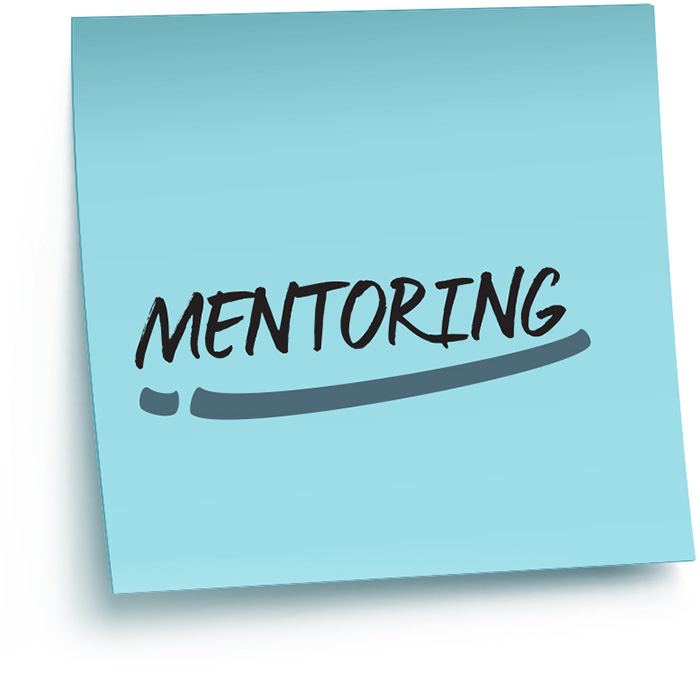
The Thursday Luncheon Group proposes the following reforms to enable employees of color to successfully thrive and rise through the ranks of the Department of State.
FS Promotions. Add “diversity and inclusion effectiveness” as a fourth employee evaluation review tenet, and make the Foreign Service Institute’s “Mitigating Unconscious and Conscious Bias” training a prerequisite for promotion to the FS-3, FS-2 and FS-1 levels. Link senior performance pay to the promotion of diversity, inclusion and equity, and use anonymous 360-degree surveys as part of the SPP review process.
FS Selection Board Process. Mandate the inclusion of an affinity group representative on all selection boards, prioritizing the selection of TLG or Pickering and Rangel Fellowship Association members. A newly established senior adviser for diversity and inclusion should participate in the screening, vetting and selection of all board members.
Institutionalize the use of Virtual Selection Boards to expand the pool of available officers from affinity groups. Reestablish multifunctionality selection boards for officers competing at the FS-2 to FS-1 and FS-1 to FE-OC levels. This will promote greater transparency and fairness for officers serving in out-of-cone assignments. Exclude any Foreign Service or Civil Service officer facing an equal employment opportunity complaint of merit from serving on any selection board for two to five years.
FS Mentoring and Counseling Programs. Institutionalize a robust mentoring program and counseling services, administered by the Bureau of Global Talent Management and the Office of Medical Services, to support employees of color at every stage of their careers.
Formalize a leadership program for FS-3 employees of color, to be administered by FSI, to provide career guidance and hone their managerial and supervisory skills. This will create a stronger pipeline of officers prepared for future deputy chief of mission and chief of mission positions.
Develop a leadership program for FS-1 employees of color to coach and train them for executive leadership positions and pair them with senior mentors. Further, the Office of the Deputy Secretary should encourage senior-level colleagues to develop a sponsorship program to support employees of color as they attempt to cross over into the senior ranks of the department.
Respect Expertise and Direct Experience
Push down decision-making power by allowing more autonomy of action at lower levels in Washington agencies and at embassies. Under the Trump administration, too many issues were pushed up to the seventh floor for decisions.
Rely more, as has been done in the past, on information flowing upward that provides analysis and indicates initial courses of action to be taken.
Be as inclusive as possible in allowing action officers to take part in deliberations and policy discussions to demonstrate respect for expertise and direct experience.
Break Down Barriers to Interagency Effectiveness
The Biden administration has an immense opportunity to break down institutional barriers between government programs and agencies that will usher in a new era of policy effectiveness. While our government has relative mastery of interagency coordination processes, achieving meaningful results is frequently hobbled by corporate cultures, bureaucratic protectionism, systems incompatibility and perverse incentive structures.
The limitations of doing business as usual are increasingly apparent in international affairs and global competition in which government is relatively less influential than in the past. Both adversaries, such as China, and allies, such as the Netherlands, are comparatively more capable of mobilizing the capacities and capabilities of disparate government departments to support policy implementation and the needs of the increasingly influential private sector around the world.
The Biden administration must begin an overdue, ambitious rethink of the way that America’s public servants work together. The timing is right. Our international affairs community, for instance, now has more alumni of whole-of-government programs than at any time in our nation’s history, and they’ve seen the light. One, Prosper Africa—developed by career public servants with bipartisan backing—is a fledgling example of a still-unrealized effort to permanently break down the institutional barriers of doing the business of government better.
The initiative is not a project in traditional terms; rather, it endeavors to change the way that U.S. government officials and the private sector jointly streamline information sharing across common work platforms while mobilizing the power of 16 U.S. government agencies. Though limited in its vision, Prosper Africa is an excellent example of what needs to occur across the entire U.S. government to increase American competitiveness, effectiveness and relevance in the 21st century.
Key aspects of a broader agenda to change the way we work together include realigned performance and promotion metrics and incentives; adaptive budgeting; more flexible human and financial resources that go beyond the equities of a single agency; greater accountability related to governmentwide strategic priorities; common working and technology platforms; cross-agency strategic management and accountability; and a recommitment to win-win public-private and international partnerships.
Put American Values Back in Foreign Policy
American soft power is far stronger than military force, sanctions and strong-arm tactics. The United States needs to stand up for the dignity of all people around the world. Let’s strive for a more positive relationship with Iran and stop sanctioning its people for the actions of their government. Let’s reengage sincerely in pursuit of an Israeli-Palestinian peace agreement that affirms the uncontroversial and fundamental notion that the Palestinian people are human beings who deserve the same rights as their Israeli cousins.
Let’s stand up for the rights of people from China to Bahrain to Myanmar who deserve to live free. Let’s reaffirm that living up to the values that we profess as Americans, and advocating the preservation of those values for people beyond our shores, is the single most powerful way to reestablish our credibility and influence abroad.
Personnel Is Policy: Fundamental Change Needed
Changes are needed in structures, systems and processes in the Foreign and Civil Services to strengthen professionalism and advance diversity, equity and inclusion.
Value and empower career employees. State has 1 percent of the federal civilian full-time, permanent workforce, but 10 percent of the government’s political appointees. Capping political appointees at 15 percent of ambassadors, under secretaries and assistant secretaries (with no political appointees at the deputy assistant level and below) will open the pipeline for professionals.
Strengthen chief-of-mission authority and update National Security Decision Directive 38. It costs $400,000 a year to support one American posted overseas. The more people, the greater the security and safety risks and vulnerabilities. Agencies should use virtual meetings and periodic travel and designate a senior representative at post.
Slash the number of special envoy positions to reduce jurisdictional ambiguities and time spent on internal coordination rather than on external goal delivery.
Make overseas comparability pay 100 percent to put it on a par with other foreign affairs agencies and boost morale.
Adopt a diversity, equity and inclusion program with achievable five-year benchmarks; make State an attractive destination for minorities by rethinking recruitment. De-layer and push responsibilities downward.
Scrap the Foreign Service performance management and assignment systems and adopt state-of-the-art models; make professional education and training integral by building in one year at the first rotation after promotion.
Revamp the Foreign Service specialist program by ending the up-or-out model and adopting new salary structures that attract and retain high-value employees in high-demand technical fields.
Make the Civil Service an “excepted” service.
Revamp the security clearance system. It currently takes an average of 10 to 18 months to on-board a new hire.
Replace the grievance and discipline systems with ones that incorporate fair process, due process, full safeguards and timely decisions (not one year or more, as under current practice) so that employees have faith in their objectivity and equity.
Tap Existing Diversity

While diversity and inclusion at State must improve, I believe that the existing diversity within our Service must be used more effectively and strategically.
The American identity is a multicultural and multireligious one. As a U.S. Foreign Service officer, a child of immigrants and a woman raised in a Muslim household, I am an example of our multifaceted society. When I’m posted abroad, however, local citizens are surprised that I am a diplomat because of preexisting stereotypes about what it means to represent the United States.
Our Foreign Service should actively engage with communities abroad to credibly and purposefully communicate U.S. values and practices of religious inclusion, racial and ethnic diversity, gender and sexual-orientation equality, and tolerance.
To accomplish this strategic objective, I recommend having a centralized repository for outreach materials that include toolkits highlighting different groups in our Foreign Service community. For example, the Department of State already has affinity groups. Why not tap into this existing resource to create videos or other social media tools that speak specifically to their experience as an American?
Moreover, due to the global pandemic, the Foreign Service has seen the utility of virtual diplomacy, and we learned that “long-distance diplomacy” works. These toolkits can be used by posts around the world to have a more strategic and surgical approach to outreach, instead of relying only on the FSOs assigned to the post. The result will be a more targeted, inclusive and precise approach to outreach.
Require a Common Core of FS Professional Education
Before the Foreign Service can reinvigorate U.S. diplomacy, it must be rebuilt and reinvigorated itself. The first and perhaps easiest step in this direction is to provide a required common core of ongoing Foreign Service professional education and formation.
Almost 40 years after then–Secretary of State George Shultz helped create the National Foreign Affairs Training Center, today’s entering FSOs may have more college degrees, diverse backgrounds and first careers behind them, but they receive less diplomatic service professional education in common than when he was Secretary. Concerned, Shultz recently underscored the importance of “Trust” in a November 2020 FSJ article and called for the creation of a new School of Diplomacy.
However, another option exists: Focusing on what is within State’s control, we could rename NFATC to create the George P. Shultz School of Diplomacy, Leadership and Management. This would build on the best of NFATC’s considerable infrastructure and services, eventually bringing short-term offerings into greater alignment within a common professional framework that would include both longer-term professional education and short-term training.
A longer-term, continuing professional education framework for all levels of State Department employees could be established through careful development of a nine-month, graduate level, pre-commission professional formation curriculum and certification to be required of all entering officers. The framework of subsequent, continuing education curricula appropriate to mid- and senior career levels would focus on:
• Enduring stewardship requirements and responsibilities (history, foundational documents, values, ethics and ethos, grand strategy and international law, norms and institutions).
• New and emerging geostrategic challenges (political, economic, social drivers of change and global transborder challenges such as arms control and nonproliferation, climate change, trade and investment, international health, emerging global technologies and media, criminal networks, cyberspace, and outer space).
• Best-practice tradecraft (integration of key policy, management and leadership skills and new technological challenges).
Once fully developed, the totality of professional education and formation schooling, completed over time, could eventually be accredited (in cooperation with a nearby university) for a master’s degree in diplomatic service (MDS).
Eventually, the MDS would be a requirement to apply for entry into the Senior (Foreign and Executive) Services at State and other agencies, as appropriate.
Adequately Resource State and USAID in Africa
The new administration can reinvigorate U.S. diplomacy and development in Africa by properly resourcing the Department of State and USAID’s operations on the continent, and by ensuring that diplomacy and development budgets are passed in a timely manner. Additionally, high-level officials, including the president and vice president, should consider traveling to countries off the beaten path in Africa to strengthen diplomatic relations with those who often feel neglected by the United States.
Revitalize Domestic Engagement
It will be difficult to reinvigorate U.S. diplomacy and development if public support for it is not simultaneously invigorated. Over the past several years, mistrust and misunderstanding of U.S. foreign policy, foreign assistance, international organizations and diplomacy in general seem to have grown.
Many Americans appear to believe this work is being done by unknown bureaucrats in unknown corners of the world to advance unknown or even nefarious ends. In many ways we are foreign to our own countrymen, which makes it easier for “deep state” rumors and misinformation to take hold. There is a lack of awareness of the ways America and Americans benefit from the work of the Foreign Service. While these challenges are not new, the domestic narrative on U.S. foreign policy, diplomacy and development has been lost in a twin deficit of trust and truth, requiring something beyond a business-as-usual response.
The State Department should consider expanding connections between diplomats (both Foreign Service and Civil Service) and domestic audiences, whether through expanded use of fellowships, secondments, sabbaticals, Diplomats in Residence, the Hometown Diplomat program or other arrangements. Such efforts could allow diplomats to use their communication and development skills to, for instance, help state or local governments improve their post-pandemic work and public engagement while building awareness of, and connections to, the broader work of the department.
The overall goals should be to: expand in-person engagement between department personnel and domestic audiences, especially those more insulated from State’s work; build understanding of the department’s priorities and efforts and how they benefit America and Americans; and build trust in the individuals who are carrying out that work.
These tools largely exist already; but rethinking and expanding them may be necessary to help bridge the sizeable perception and information gap that has grown between what we do and those for whom we do it, and whose support is ultimately needed for that work to be sustainable.
Give Management Support to Public Diplomacy in the Field
I could go on about the importance of filling leadership positions as a key component of rolling back the damage done to the State Department and Foreign Service during the Trump years and, especially, the need to restore the 2/3 to 1/3 ratio of career ambassadors to political.
This note, however, proposes a critical adjustment to strengthen public diplomacy. Neglected since the integration of the U.S. Information Agency into State in 1999, the problem of proper management support for PD programs in the field has only intensified in recent years. Although integration increased the chances that PD cultural and research-based perspectives would gain a seat at the policy table, the management support to carry out our programs in the field has been devastatingly compromised.
We used to manage programming at the mission level, but today more and more of a post’s public affairs section budget is doled out in discretionary grants that place a lugubrious demand on officers’ time and attention, completely inhibiting proper engagement with the local society and, thus, the ability to go the proverbial “last three feet.” The paperwork involved and the training to do that management work suck the energy out of engaged, culturally informed strategic public diplomacy officers.
The lack of management support is the main reason we’ve lost the granularity and effectiveness of programming based on contact relationships.
Public diplomacy needs dedicated management in the field. One possible solution would be to embed in a public affairs section a dedicated management officer, trained in grant administration, budget and personnel systems, who has been cross-evaluated by the PAO and the management counselor. Another would be to revert to the USIA model of having a management specialist answerable to the PAO.
Merge State and USAID

USAID is an essential institution of our foreign policy, serving as an operational, on-the-ground unit under the policy direction of the State Department. For decades, USAID and State have jousted over the proper role of development assistance in foreign policy, often doing so from a common misunderstanding of their roles.
This is due in large part to USAID being viewed (wrongly) by State and other federal colleagues as a simple technocratic implementer of policy, one deficient in strategic vision and lacking a proper theoretical basis for its actions. As a result, USAID has been denied a permanent, senior position at the National Security Council or in policy discussions.
Officially merging USAID with State would solve a great deal of this disconnect, thereby bringing Senior USAID Foreign Service officers to the table, in the same building, on a routine basis with State, if not on occasion with Department of Defense colleagues.
Those who argue for a continued formal separation between State and USAID struggle to define exactly what differentiates them in practice. Similarly, those who are adamant about maintaining the “uniqueness” of USAID’s functions fail to recognize that its specialties of development, humanitarian assistance, governance and conflict resolution cannot be properly implemented without a formal connection to other larger institutions, such as State and Defense.
In this age of nonstate actors, flexible views of a nation’s sovereignty and forever-unfolding complex conflicts, USAID’s influence and on-the-ground presence are needed more than ever.
USAID was formed during the height of the Cold War to advocate and create the conditions for a capitalist market system; we competed with another system that has been thoroughly discredited. We have won that debate. Let’s now make sure USAID is present at the policy discussions and has a say in determining when and why we will engage in a country or region to shape and assist.
If we are an integral part of State, we will have a proper and regular forum in which to participate. If not, we will continue to be an afterthought.
Invest in Language Training
My advice: Carefully consider the positive benefits and competitive advantage of investing in language proficiency training, especially in esoteric or less widely spoken tongues.
Our Foreign Service Institute language school and commitment to training set us apart and open doors locally that would otherwise be closed. One Australian colleague in Laos, for example, expressed wonder at the extensive training our officers received in Lao. We used those language skills to gain local connections and insight, bolstering the United States’ odds in geopolitical competition. (The Russians and Chinese certainly spend the time and money to train their diplomats in less common dialects.)
It might be tempting to look at the FSI budget and save money by cutting courses in Amharic, Bengali or Finnish. But that would be a mistake that hinders the long-term strength of our Service.
Rely on Us for Substantive Policy
The new administration will face unprecedented skepticism concerning America’s place in the world and the durability of U.S. foreign policy. But it can reinvigorate American diplomacy, utilizing the Foreign Service to develop substantive courses of action and policy execution. Here are a couple suggestions.
Speak globally and carry a positive message. Former President Bill Clinton famously said, “People are more impressed by the power of our example rather than the example of our power.” Climate change, pandemic response, global cybersecurity, arms control and managing the rise of China are areas that intersect with the interests of our many (admittedly boisterous) allies and offer opportunities for U.S. leadership.
While trade will remain contentious, the Biden administration can engineer win-win scenarios for American middle-class workers and international partners through vigorous business development efforts. Even when foreign governments are not synced with the U.S. position, we can proactively set the global agenda, offer viable alternatives, and create future negotiating space and momentum.
Missions overseas can contribute to policy formulation, bring foreign governments aboard, connect our private sectors, and communicate with elites and broad audiences.
Reconstitute the interagency process. Ad hoc approaches to policymaking or endless interagency debates can hamstring development of coherent lines of effort to advance U.S. interests, result in missed opportunities and drain the morale of our diplomats.
A slimmed down, efficient National Security Council can harness the talents of the interagency; provide broad policy guidance and an approved playbook for execution; and let departments and overseas missions implement without micromanagement.
Ambassadors and country teams should be front and center on these engagements to provide options to policymakers on how to advance American interests in foreign capitals or multilateral institutions.
The most important work starts at home. Let us recall the prophetic words of FSO George Kennan in his 1946 “Long Telegram,” which laid out a framework for containment of Soviet power: “Much depends on the health and vigor of our own society … measures to solve internal problems … are worth a thousand diplomatic notes and joint communiqués.”
As citizens and FSOs, we now face the challenge of our time.
Overhaul the Assignments Process
Evidence shows that diverse teams perform better, and a diverse diplomatic corps would more effectively formulate and implement policy in our national interest, build stronger relationships with foreign governments and their people, and promote peace and prosperity worldwide.
By harnessing America’s diversity, we gain competitive linguistic and cultural advantages compared to largely homogenous societies. But while the State Department is relatively successful at recruiting women and minorities, it is not retaining this talent, which suggests our personnel systems need examination.
A key to retention is the assignments process. Landing top assignments opens doors, but sometimes it’s more about who you know than what you know that determines outcomes. Moreover, biases against women and minorities in leadership roles affect their selection for top assignments.
The current system is inefficient, labor-intensive, and exploits employees’ professional and personal time. It also advantages those skilled in the art of self-promotion or who have mentors or sponsors, and it is riddled with partialities such as senior leaders’ interventions and affinity bias in selection (our tendency to gravitate toward similar people).
The new administration can reinvigorate U.S. diplomacy by centralizing assignments in the Bureau of Global Talent Management, focusing on qualifications and potential rather than who you know. Employees submit bidding materials with professional, personal or medical considerations to GTM. GTM mitigates against biases by standardizing criteria and interview questions; anonymizing résumés and recommendation letters; conducting interviews with more than one interviewer through the same medium; using a scorecard; and creating a 360-degree feedback process (which can help eliminate a kiss-up, kick-down culture).
GTM then matches skills and scorecards to vacancies, using the Nobel Prize–winning solution to the stable matching problem, which finds matches given an ordering of preferences.
By overhauling the process, the department can tackle retention and morale problems, create an equitable and transparent system, save taxpayer money, address tandem couples’ issues, and remove institutional barriers that prevent women and minorities from advancing. This will lead to a more diverse Foreign Service that will be better positioned to conduct foreign policy.
Trust the Existing Staff in the Transition
I was a USAID health and population officer during the transition from George W. Bush to Barack Obama. As director of the USAID/Bangladesh Health and Population Office, I had suffered personally and professionally from having to implement the Mexico City Policy and other disastrous population policies during the eight years of the Bush administration. I and many of my fellow officers were delighted with the arrival of the Obama administration and the prospect of designing and managing a more enlightened and effective reproductive health policy after so long.
Unfortunately, some new Obama administration leaders at USAID/Washington seemed to think that anyone who served in the Bush administration could not be trusted, and we were not consulted in the development and implementation of new policies. This adversely affected the morale of the Population Office and delayed the implementation of much-needed change.
Therefore, my recommendation to the new USAID managers is to carefully assess and utilize the wisdom of the existing Civil and Foreign Service professional career staff in improving the health and population policies of the last administration. Don’t throw out the babies with the fetid bath water! I am sure that this is important in many other development fields, as well.
Reimagine Diplomatic Service

As we reimagine work in the aftermath of COVID-19, consider the green economy benefits and work/life balance benefits of integrating telework into the federal workforce in a more sustained fashion.
Consider establishing secure outposts for classified information in targeted areas to reduce congestion, relieve commute times, and improve health and housing choices for employees with limited financial resources.
As we reimagine diplomatic service, consider not only reforming the FS cone system, but also the wall between the Civil Service and Foreign Service. Civil servants should be granted more opportunities to serve abroad, and FSOs should be allowed to transition to the Civil Service (and back again) without significant financial penalties.
Both services would benefit from a more fluid separation between them.
Have Faith in Your Professionals
We have high hopes.
Please, have faith in your professionals.
Please, listen before acting.
Finally, expect to hear complaints and negative comments. Understand that many of them come from a place of pain and fear. People can heal better if they feel heard, even if their issue isn't “fixed” in the long run.
Trust the Foreign Service
Please trust the Foreign Service. That means: Don’t just bring back retired FSOs or retired military to lead the State Department, comforting as that might seem. Current FSOs are up to the challenge.
Much has been written about how the new administration must rebuild the Service and repair morale. Please start by demonstrating faith in its current members.
Expand Trans-Atlantic Relations
Positive engagement with our NATO allies is critical. NATO has been central to maintenance of peace in Europe since 1949, and its expansion has led to greater and greater capability. U.S. foreign policy in Europe should leverage this history to strengthen the close and efficacious relationship, and expand it to new and candidate members. Sharing the burden of maintaining peace is a sure way to generate trust and goodwill.
NATO should not be seen exclusively as a military alliance, but an alliance of shared values. U.S. embassies in NATO and NATO-candidate countries should be encouraged to increase not only military-to-military engagement based on NATO ties, but also political and cultural engagements based on these shared values.
Trans-Atlantic relations should be centered on the already established cooperation generated by NATO. A strong diplomatic effort to highlight the advantages of NATO membership—including educational and cultural exchanges and preference in trade policies, as well as military-focused cooperation—would deepen this crucial alliance.
NATO has been, and I believe will continue to be, the most successful alliance system in history. U.S. foreign policy would be well served to not only work within this existing relationship, but work to expand it, increasing its capabilities and reach.
Train Diplomats in the Declaration of Independence
U.S. diplomats must know America’s founding tenets, and how to project them. Council on Foreign Relations and Harvard Kennedy School papers recommend new diplomatic education. Today that must cover more than international relations. Future U.S. diplomats should be immersed in the creed of the Declaration of Independence, and how it works in the world.
No expertise in the declaration’s creed is codified, but several motifs illustrate some of its content: The declaration’s truths define national identity; the Constitution defines the governing state. Many see “democracy” and “free enterprise” as American values, but those are particular interpretations of “consent of the governed” and “pursuit of happiness.” The creed is America’s common ground and is debased by partisan claims to its exclusive sanction.
No airy ideal, the creed is meant to flourish in a dirty world. Diplomats must reconcile, sometimes painfully, to pragmatic measures. Nuanced understanding is required to assert the context of America’s intentions and core identity around economic deals, moral compromises and wars.
Immersion in these ideas and nuances demands more than readings. Digestion of concepts and philosophies must occur alongside case studies and simulations that portray how the creed and the world affect each other. Dilemmas of pragmatic policy, questions of philosophy and morality, and burdens of an abstract creed must all be raised to test student-diplomats’ commitments.
With this formative education, diplomats will constitute a Foreign Service of shared professional commitment. Knowing America’s core, they can represent diverse administrations’ shifting policies as acts of a united nation. They can digest chaos and form coherent policy where instructions are absent. CFR recommends a “de-layered” State Department and supportive culture; these enabled diplomats animate a “nimble” Service. In policy processes, they wouldn’t be seen as representing “other countries’ voices,” but as stewards for America’s creed.
No other agency is charged with this general national interest. While the Department of Defense provides national security, creedal expertise is as vital and real as expertise in armed force. State should become the “America Desk.”
Implementing a curriculum takes time, and expertise in America’s creed will only demonstrate its value as successive administrations contradict each other. But prescribing this expertise for the foreign policy apparatus today will signal that America knows its common ground.
Four Ways to Reinvigorate U.S. Diplomacy
The incoming administration can reinvigorate U.S. diplomacy and development by advocating for and supporting passage of a new Foreign Service Act, enhanced health and environmental policy, and improved hiring and talent management.
First, a new Foreign Service Act should codify several changes. It should dictate minimum staffing numbers for the Foreign Service. It should mandate that political appointees fill no more than 10 percent of ambassadorial appointments, and that at least 70 percent of all assistant secretary and senior department positions be filled by career officers. It should also ensure a minimum floor of overseas FS positions and codify the importance of functional assignments.
Second, the Biden-Harris administration should prioritize science and health diplomacy by creating a separate environment, science, technology and health (ESTH) cone. It should support functional training for work in bureaus such as Oceans and Environmental Sciences, career development through exchanges, graduate training and meaningful work opportunities in other agencies.
In addition, increased coordination for a whole-of-government policy from State, USAID, the Millennium Challenge Corporation, Department of Defense, National Security Council and the intelligence community is essential to addressing challenges from anthropogenic climate change and epidemics and their links to poverty, political instability and social crisis.
Third, the administration should prioritize moral courage by entirely redesigning the employee evaluation report to reward risk taking and honest appraisal rather than compliance and risk avoidance. The department should support more flexible hiring mechanisms and opportunities to serve, such as midlevel hiring of FSOs, expanded eligible family member positions, a Foreign Service–Reserve Officer Training Corps program and conversion mechanisms between the Civil and Foreign Service. Effective support for diversity and inclusion is essential, not only to ensure that the department reflects the United States’ diverse heritage, but also by encouraging debate, respectful disagreement and data-driven analysis over clearance by superiors or Washington.
Finally, the department should transform the Foreign Service Institute to become a degree-granting diplomatic studies academy similar to the U.S. military service academies. Significant, rigorous training of no less than six months of full-time study or participation in seminars should be required at entry, mid- and senior levels as a prerequisite to promotion.
Address Midlevel Entry and Assignments
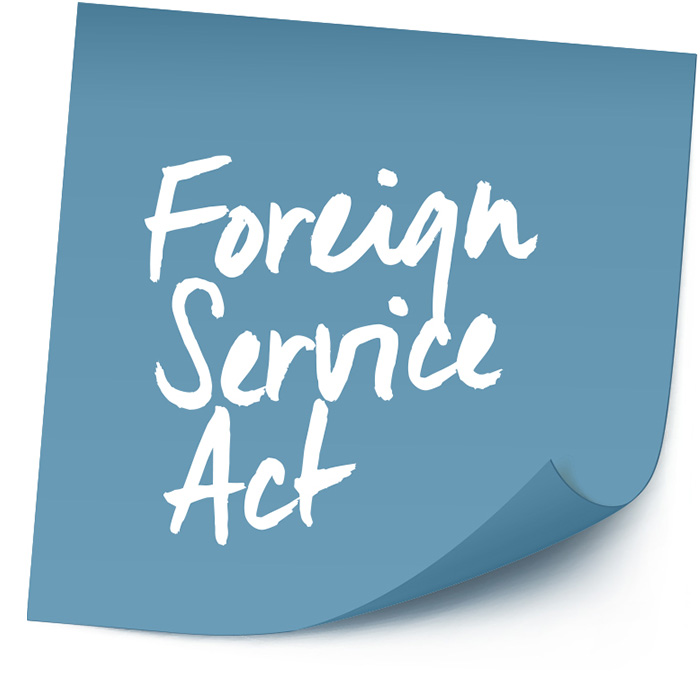
In 2010 I was part of the 150th A-100 class of 82 people with an average age of 32. Ten of us were over 50, and to my knowledge we have all left the Service. Our reasons for leaving are similar and could be cured partially by some of these suggestions.
First, implement a midlevel entry program so that executives and otherwise experienced people age 50 or older could manage people and use their skills, perhaps as an FS-2 after A-100 and additional specialty training. Combine this with eliminating the five “cones” of specialization, and evaluating preexisting skills brought into the Foreign Service rather than dismissing them as irrelevant. This suggestion gets at the heart of moving away from the internship approach and to a modern personnel paradigm where people with knowledge and skills are hired and then fully utilized.
Second, examine the entire structure of why and how FSOs rotate posts and, more critically, what FSOs do. Do we really need 10 political officers at an embassy writing cables that few read and contain information everyone could get from watching CNN? Perhaps, for example, economic officers and members of the Foreign Commercial Service should be merged, with a much greater focus put on creating jobs in America through increased foreign direct investment and networking.
Third, learn a language in country, not in Arlington, Virginia. We need to look critically at how languages are taught, evaluate which positions need to be language designated, and require a better return on investment than one year in country for one or two years studying a language full time.
Fourth, require a 360-degree review for employee evaluation reports. This reform alone, to have bosses reviewed by their employees, would revolutionize State. Senior and other supervisory FSOs would be held accountable for their leadership skills and for the performance of their sections.
Care for U.S. Diplomats
To reinvigorate U.S. diplomacy, the new administration must first reinvigorate U.S. diplomats. It is no secret that morale has steadily dropped in recent years.
Despite the professionalism of our nation’s Foreign Service officers, it is implicitly more difficult to advocate for the mission when one doesn’t feel a part of it. Reassuring old allies that the United States “is back” is important, of course, but it can be back only if the foot soldiers of diplomacy feel like they are back, too.
Diplomats need to be cared for, and—in turn—they will care for diplomacy.
Leverage State’s Greatest Asset—Its People
Here are some suggestions for the new administration’s first 100 days.
Empower Foreign Service leadership. The new administration can turn a page in U.S. diplomacy by elevating more career diplomats to key leadership positions. The multifaceted experience of career diplomats will prove useful in navigating the multidimensional challenges of the world today.
Career diplomats will know how to shepherd the policies of the new administration and retain its institutional knowledge for continuity. Appointing career diplomats to leadership positions would also boost morale, as the men and women of the State Department see the professional rewards of embracing a lifelong career.
Lead with the face of America. To expand workforce diversity at the State Department, the incoming administration can begin with vertical and horizontal promotions of women and minorities already at the agency. This would be a pragmatic and feasible way to jump-start workforce diversity initiatives prior to implementing alternatives that may require more time and effort through legislation or executive order. By tapping into the State Department’s diversity first, the new administration will begin to unlock the full depth of talent within the agency.
Staff national security missions to win. The new administration can signal strong support for diplomacy by prioritizing the staffing of diplomats at posts critical to U.S. national security (e.g., Iraq, Afghanistan). Though uncertainty will always prevail in countries characterized by weak stability and security, staffing fluctuations at these posts are sometimes the result of U.S. policy prerogatives rather than in-country crises.
Some of the missions, in countries deemed “unwinnable” by military means per U.S. military experts, have experienced downsizing/rightsizing exercises, cutting FSOs and ejecting them before or during their in-country service. Like many Foreign Service colleagues, I have experienced such policies and witnessed their unintended consequences.
Whether the new administration seeks to withdraw or surge U.S. personnel, it should, when possible, adopt a phased- or conditions-based staffing approach to minimize disruptions to missions working on U.S. national security matters.
Institute a Language Requirement for Entry
You don’t need to know a foreign language to enter the Foreign Service. We will teach you.
The rationale for this policy goes back to the time of the Rogers Act of 1924 and after, when generally only wealthy Americans had the opportunity to learn foreign languages, and we wanted to draw officers from a broader pool. During the past century, as more and more people came to speak English, the need for a foreign language was apparently diminishing.
I think it is past time, however, to do what most other diplomatic services have always done, and that is to make language ability and knowledge a requirement for entry into the Foreign Service (in addition, of course, to the other requirements such as the written exam, oral interview, good health, etc.).
Specifically, to enter the Foreign Service, an individual must have at least a 4/4 in a world language or a 3+/4 in a hard language. Many more Americans now possess those levels of fluency in a foreign language, either because they are immigrants or the children of immigrants, because of service in the Peace Corps or because of study abroad.
A more than minimum level of fluency in another language will make them more effective diplomats and, in particular, will make it much easier to reach foreign nationals who do not speak English.
Embrace Constructive Dissent
We write this note in defense of dissent, affirming our belief that it contributes to a stronger diplomatic corps—and a safer world. It is vitally important that the new administration promote constructive dissent for its value in the development and implementation of effective foreign policy.
First, constructive dissent drives innovation. The private sector knows this. Forbes magazine recently argued that one person’s dissenting views can drive the creativity of an entire group, promoting divergent and unbiased thinking that enhances decision-making. Dissent is also an important part of working in teams, where each voice brings a unique perspective. For diplomats, our ability to give honest policy recommendations will only be as good as our ability to have honest conversations with each other and within our own institution.
Second, constructive dissent creates a safer, more open work environment. Dissent without fear of reprisal is crucial to generating new and different ways of thinking. When leadership encourages constructive dissent, employees understand that their ideas are valued and are more likely to contribute to the common good—especially diplomats from diverse backgrounds whom the department has had a chronic problem retaining.
Third, constructive dissent is a measure of the strength of leadership. The best leaders recognize and protect dissent because they understand that it allows them to shift some of the burden of decision-making from themselves to the strengths and talents of their team. It also prevents the irrational and dangerous phenomenon of “groupthink.” Being an effective leader means that you actively encourage individuals to speak their mind—a value that lies at the heart of our democracy.
Seeing dissent as a positive attribute and not a threat helps to create trusting partnerships between leadership and employees, and results in better workplace safety, more inclusive policies and higher ethical standards.
Organizations die from conformity, not dissent.
Address Resources and Organization

To reinvigorate U.S. diplomacy, changes that are both internal and external to the State Department are necessary.
First, Congress should provide a consistent budget and timely annual financial flows. Period. No more continuing resolutions. The U.S. Foreign Service should be able to count on at least an annual budget and financial flows—even better, a real two-year budget. We all know that no business could remain viable if it operated the way our government has operated over the last 20 years. The financial fits and starts, or shutdowns, make it extraordinarily difficult to plan or implement anything.
Second, foreign affairs professionals should be leading U.S. foreign policy. The National Security Council and Department of Defense, as well as Congress, have taken on larger roles while State Department talent—which focuses all its time and effort overseas and is physically located around the globe—has been sidelined.
From a global operational perspective, several priorities stand out. First, the U.S. government needs to focus on building global trust and being a reliable, consistent partner. For the last 10 years (at least, and likely since 9/11), U.S. motives have been questioned, and we have not been able to sufficiently answer concerns, even from our strongest allies.
Second, we need to be able to effectively communicate in a world that is on 24/7. We need to ramp up our capacity and resources so that we can be a positive and strong influence and model in the global chat room. But we also need to ramp up our ability to meet face to face with the world. In other words, there should be increased emphasis on and resources for exchange programs. Current State Department exchange programs are the gold standard globally.
Finally, to develop and align personnel resources to be where they are really needed, the State Department’s human resources systems should be completely overhauled, especially the evaluation, promotion and assignment processes. Professional development and training should also be more frequently required. Though State attracts great talent, its internal operations are often nontransparent and decades behind the rest of the country.
Make Démarches Count
How to leverage the value added of the Foreign Service? Find and repeat one of former Under Secretary of State for Political Affairs Thomas Pickering’s first instructions to posts on assuming his position.
In that message, Pickering urged embassy officers to creatively modify, edit and craft démarches for maximum impact on receiving governments, not simply mechanically transmit démarches as received from Washington.
Create Diplomatic “Special Forces”
Reinvigorating the Department of State diplomatic corps requires new thinking and a commitment to grassroots, person-to-person engagements, including to traditional leaders, village chiefs, elders and influencers far from national capitals and host-nation state houses. We need to establish the equivalent of “diplomatic special forces” like the Green Berets.
Such “Diplomatic Expeditionary Field Teams” would accept Foreign Service volunteers willing to undergo rigorous physical and advanced operational training to allow small four-member groups to operate independently in the most unstable, remote and challenging environments. I have created much of this curriculum, elements of which are covered in my textbook, Humanitarians in Hostile Territory: Expeditionary Diplomacy and Aid Outside the Green Zone (University of Chicago Press, 2010).
Reactions at State to the concept of DEFTs range from “our FSOs already do this in places like Iraq” to “embassies don’t have this mission.” Yet our ability to engage in remote, deployed, grassroots diplomacy will determine future foreign policy success. And longer-term remote outreach missions require more specialized skill sets and resources than civ-mil and Foreign Affairs Counter Threat training currently provides.
This recommendation is based on my own experience—in Afghanistan three times and in Iraq four times under various auspices, most recently serving at Provincial Reconstruction Team-Anbar (2007-2008). In prior work at Firebase Anaconda in Tirin Kowt, Afghanistan, I engaged in shura councils and interviewed the local mayor in 2004 in Mullah Omar’s birthplace. In Iraq in 2005, I deployed with Romanian special forces teams. In my assessment of each of these assignments, the need for a more robust diplomatic presence by specially skilled State Department officers was obvious and prominent.
Diplomatic special forces–type teams will greatly enhance our engagement in nonpermissive areas of operation, providing reporting for policymakers with unique perspectives and assessments created well beyond U.S. fortress embassies. During one of my seminar briefings at the Defense Institute for Security Assistance Management, our military counterparts were enthusiastic about the DEFTs concept for diplomatic personnel. This would make FSOs much better partners for civ-mil cooperation.
It is time to formally add this “special forces” element to the Department of State’s overseas arsenal.
Let Us Imagine
Imagine the United States influencing other nations through dialogue, not dictate.
Imagine the United States presupposing mutual respect and understanding even when these two do not presume agreement.
Imagine the United States viewing reconciliation as a sign of strength rather than a sign of weakness.
Imagine the United States advocating a touch of humility in place of the heavy hand of hubris.
Imagine the United States putting itself in the shoes and bare feet of immigrants and their children.
Imagine the United States as a builder of bridges, not walls.
To achieve the above:
Imagine the United States with President Biden at the helm who reflects the above approaches to foreign policy.
Lead from the Front
The Biden administration should reserve judgment on reversing any of the Trump administration’s foreign policy initiatives until it has had time to examine them closely, especially for issues demanding close coordination with allies and friendly powers.
For example, quickly rejoining the Joint Comprehensive Plan of Action might be attractive to many of those former Obama administration officials reprising their service with a Biden National Security Council and State Department, but precipitous actions without involving allies and regional stakeholders would only compound the current difficulties of limiting Iranian ambitions regarding nuclear weapons. Likewise, for efforts to forestall Russian destabilization efforts in Eastern Europe and even throughout the European Union area, consultations with allies should precede public statements of policy.
Most important, the United States must lead from the front, in consultations with its allies, but clearly as the leading power among a group of like-minded states. That is the natural position for the United States for this moment in history, as former Prime Minister Tony Blair put it in an address to Congress in 2003. As Shakespeare noted in “Twelfth Night” (Act 3, Scene 4), “Some have greatness thrust upon them.”
Improve Fluency in Africa’s Indigenous Languages
Throughout sub-Saharan Africa we seek to counter malign influences and increase trade. All indications are that Africa will be the epicenter of growth and development over the next century. Yet we come to African posts linguistically hobbled, while China’s diplomatic language school is steadily increasing the number of indigenous African languages taught. To be serious partners there, we must become more dexterous linguistically.
For historical reasons, we require FSO fluency in languages such as French and Portuguese. But we cannot conduct diplomacy today in the language and culture of the educated elites and marginalize or ignore the voices and concerns of the masses for whom colonial languages are not those of their dreams.
Currently a few of our officers receive instruction in Kiswahili, Hausa and Amharic, but an insufficient number are conversant in indigenous languages. Too many Africa posts rely on local staff to interpret media, be present at interview windows and make the deeper connections that are only possible when one engages in a person’s mother tongue. Our local staff are excellent, but there is no substitute for our diplomats doing this work directly.
We need to have greater familiarity and fluency in major languages spoken across Africa’s national boundaries, such as Swahili, Somali, Yoruba, Igbo, Hausa, Fula and Oromo. And we should acquire skill in important country-specific languages such as Wolof, Zulu, Shona, Amharic and Lingala.
Sustainable exploitation of Africa’s immense natural resources in land, forests and sea is key to addressing climate change and in countering other threats to economic and environmental security. For this, skill with indigenous languages is essential, especially outside the capitals.
With even basic vocabulary, our diplomats can convey the respect required to build strong relationships, which continue even after the conversation has switched to the common Romance language. Becoming conversant in indigenous languages at post (in addition to FSI fluency) is also a great way to bring together the embassy community between and among FSOs and our local colleagues. Posts sponsor events with local food or crafts, and there people learn what everything is called. Such events also help address some of the class prejudice among locally employed staff of different backgrounds.
Engage American Audiences in Foreign Policy

The State Department needs a targeted, well-resourced strategic outreach plan for engaging domestic audiences on those issues of foreign policy that most affect American security, our economic well-being, and our ability to travel and engage successfully in the world. As each election year reminds us, a large part of the American electorate is either unaware of, or may not understand, the daily positive impact of U.S. diplomacy on their lives.
The State Department should invest in a data-driven, multiyear and targeted campaign to engage local and state communities across the United States on key foreign policy issues. It must be adequately resourced and separate from the department’s public diplomacy funding used to engage foreign audiences. Polling should play a major role in identifying the areas for outreach and in measuring success. The outreach should focus on the issues that most matter to those particular voters, and how the work of the State Department supports their economic livelihood and security.
Managed from Washington, this campaign should enlist the support of retired colleagues around the country to visit local and state government officials, community town halls, and local universities and schools to make the case for American diplomacy. Other possible partners could be AFSA, the National Museum of American Diplomacy, local and international American Chambers of Commerce, Diplomats in Residence, universities with diplomacy programs, and the Senate Foreign Relations Committee and House Committee on Foreign Affairs.
We could also ask the hundreds of young people who apply for virtual or in-person internships to be part of the effort, designing social media campaigns and serving as youth ambassadors for the State Department.
Department leaders should visit all 50 states with targeted messaging to select constituents, most importantly those most critical of U.S. engagement around the world. Ambassadors could be provided two weeks each year to spend time in their home states as part of this strategic campaign, with a required reporting cable on noteworthy themes and audiences engaged.
Pursue Inclusion Intentionally
Aggressively recruit and assign employees of color to senior-level positions. The 2021 summer bid cycle was an opportunity to reverse past trends, yet FSOs of color were overlooked for senior-level positions. State Department senior leadership have the authority to reject short lists not representative of the workforce’s diversity and to demand bureaus justify their inability to produce diverse slates prior to the final stages in the Deputy’s Committee. Energetic recruitment should not be limited to overseas jobs, but adopted for deputy assistant secretary and office director-level positions.
Establish reporting mechanisms. State should establish a separate office to address toxic workplace dynamics and create reporting mechanisms for employees to disclose incidents falling short of the equal employment opportunity (EEO) threshold (i.e., microaggressions and discriminatory behaviors). These mechanisms should trigger a response from the overseas missions or bureau leadership to investigate and prompt timely mediation by a team based in Washington.
This office must exist outside of the EEO complaint process managed by the Office of Civil Rights and report directly to the Deputy Secretary. The Director General’s Office should form a committee to determine consequences for the person displaying discriminatory behavior, including additional training to address supervisory skills, a formal letter of reprimand shared with the bureau’s front office, denial of senior performance pay, or the inability serve in senior leadership positions for five years.
Institutionalize FS mentoring, coaching and counseling. State should institutionalize robust mentoring programs and counseling services particularly to support employees of color and those under the Pickering and Rangel fellowships at every stage of their careers. This requires bolstering existing staffing and budgetary resources for the Foreign Service Institute’s Executive Coaching Program, Global Talent Management’s Office of Continuity Counseling and Office of Medical Services’ Employee Consultation Services.
Starting at the entry level, support from these offices coupled with targeted mentoring and coaching programs will ensure employees have the resilience to pursue a successful career. State should formalize leadership programs for FS-3 and FS-2 employees of color on career navigation and managerial and leadership skills. This will strengthen a pipeline of officers who are prepared for future deputy chief of mission and ambassadorial positions. State should expand the newly created FS-1 leadership program to coach for executive leadership positions and pair them with senior mentors.
Change the Name of the Foreign Service
Change the name of the Foreign Service to the “United States Diplomatic Service.” If the new administration is serious about grounding foreign policy in the day-to-day concerns of our fellow citizens, then America’s diplomatic corps should have a name that tells them what it is we do.
The word “Foreign” fails to communicate that and, unfortunately, reinforces the sense that something about our mission is not grounded in our own country. We know nothing could be further from the truth, but we also need to be honest that the name “Foreign Service” is not helping our cause with the American people.
Some will object based on tradition, but organizations must find ways to reinvigorate themselves over time or else become stagnant. Another objection will be that this is purely semantics and thus not worth the time and effort. But words do matter, as we diplomats know best of all.
And many will object by saying such a change is not needed, which can be tested by surveying a representative sample of the American people to see how many know what the “Foreign Service” is. Another means of testing the value of such a change could be to ask a survey group what a “foreign service” does and what a “diplomatic service” does. Certainly, we would expect the latter to be far more effective in conveying our mission.
Americans overwhelmingly support diplomacy as the primary means of protecting our interests and security. Our Service should have a name that unambiguously tells them this is what we do.
Raise the Mandatory Retirement Age
More diplomats and specialists than usual retired earlier than planned during the Trump administration. By most reports, it will take “years” to rebuild the diplomatic workforce.
Consider raising the mandatory retirement age to match the Social Security full retirement age or, better, age 68. This can be phased in so that people who already have already served their 20, 25 or 30 years can still receive full benefits when they choose to retire under the age 65 rule.
The reality is that people are living longer and healthier. Our new president is 78 years young! Correcting the arbitrary forced retirement age of 65 will help fix the current talent gap in the workforce. Specialists with specific skills, such as IT and medical, are particularly difficult to recruit and retain. How about starting there?
Retire the “Ethos” Statement
We did not need a reminder to be “champions,” to support and defend the Constitution, or to serve with “unfailing” professionalism (as if we were at risk of failing unless reminded).
Indeed, the Ethos statement became a reminder that senior leadership did not act with “uncompromising personal and professional integrity.” Examples were frequent, significant and damaging to the department and to career employees. Violations of law and policy without consequence (e.g., the Hatch Act) had significant negative effects.
It is time to rebuild with genuine professionalism, integrity and diversity. We do not need an Ethos or vision statement to uphold those values.
Put Diplomats Back “On the Street”
While the threat of terrorism and the security upgrades have limited how much Foreign Service officers can venture out into the cities and countryside in recent years, I want to encourage the new administration to put the focus back on diplomats having contact with ordinary people. When I served in the Middle East (Dubai, Damascus, Casablanca), many of the kudos I received for my reporting were the result of interacting with people “on the street.”
Talking to the elites may provide some window on how a government ministry is functioning, but the heartbeat of any economy and society lies in the workers and how they can carve out a living. Diplomats belong outside the walls of the embassy or consulate, having exchanges with students, union leaders, activists and the full range of a country’s social strata.
Prioritize Upgrading Technology
The Biden administration can reinvigorate U.S. diplomacy by investing in 21st-century technology to enable a more nimble and technologically capable diplomatic corps. COVID-19 has motivated the department to do some upgrading, but it needs to go further.
Diplomats need mobile phones with dual SIM cards and laptops to take from post to post. They also need continued investment in web- and cloud-based solutions that improve internal operations and enable modern interactions with external partners.
Significant department resources are wasted maintaining legacy systems that no longer serve the American people well and hinder the operations of diplomats overseas. The Bureau of Consular Affairs wastes serious amounts of money and employee hours on paper-based applications and out-of-date software systems. These inefficiencies restrict the speed at which officers can assist U.S. citizens abroad and assess foreign nationals requesting consular services.
By improving systems, fewer consular officers would be required abroad to support consular services. Thus, more officers would be available to build relationships with foreign interlocutors and advance U.S. foreign policy objectives. Moreover, smart technology investments now will reduce staffing costs and improve margins for decades to come.
Lead with FSOs
There are several good reports on strengthening (saving) the Foreign Service. They should be studied carefully and mined for good ideas. This is a medium-term approach.
But what the new administration can—and must—do immediately is appoint Foreign Service officers to leading positions in the State Department and abroad. Surely, there are more appropriate ways to reward large donors than making them ambassadors.
Fix the Special Immigrant Visa Program

Devote the resources necessary to fix the Special Immigrant Visa program for the thousands of Afghan and Iraqi nationals who have supported the work of the United States. While many have already been granted visas and are now valued and productive residents and citizens of America, thousands more continue to live in constant and very real fear of violent retaliation for their work. Current events in both countries suggest that this danger will only increase over the next few years.
Evidence in a class action lawsuit Afghan and Iraqi Allies v. Pompeo, filed in June 2018, showed that the average Afghan and Iraqi SIV applicant was likely to wait more than four years for a visa. A February ruling in U.S. District Court in Washington, D.C., noted that more than 7,700 applicants have been waiting longer than the congressionally mandated nine-month response time. The judge ruled that such delays are unlawful.
A June 2020 Office of the Inspector General report on the SIV program noted that “the department’s management of resources and strategic planning for the Afghan SIV program is decentralized and lacks the focus needed to continuously evaluate the program and seek improvements.”
Thousands of State, Defense and other federal employees can personally attest to the bravery and dedication of our Afghan and Iraqi colleagues, and to the threats and intimidation they and their families continue to face. We should honor their service and honor the intent of Congress by faithfully and diligently implementing the Special Immigrant Visa program.
Zero Tolerance for Jerks
No jerks. No tolerating jerks. No promotions for jerks. And most of all, no leadership positions for jerks—or those who enable them.
There is no excuse for Foreign Service generalists and specialists—a smart and selectively chosen bunch—to be or to tolerate jerks. Jerks include those with major conduct, suitability and discipline issues, such as criminal behavior, sexual misconduct, equal employment opportunity issues, and physical or emotional abuse of American and locally employed staff. Jerks are also those who are lazy, incompetent, extreme micromanagers, socially inept and excessively self-promoting. They lack empathy and take a kiss-up, kick-down approach to management and leadership. Jerk enablers and jerk ignorers are also jerks and should be treated as such.
Why do jerks matter? Because they make the workplace (and overseas, the wider FS community) unhappy, unhealthy, unproductive and unsafe, thus diminishing the effectiveness of U.S. foreign policy. No amount of (supposed) policy, programmatic or management “brilliance” warrants a jerk’s behavior. Jerks need to be identified and counseled, and issues with jerks need to be processed as appropriate (and required) within the system.
We need more carrots and sticks to confront jerks. The Bureau of Global Talent Management needs to come up with visible ways to recognize and award staff (especially entry-level staff and overseas local staff) who do the right thing. Today, staff who confront jerks see or hear little or nothing regarding resolution, at best. More often, they are ostracized and made to feel as if they have done something wrong.
More public naming and shaming of jerks would help. Jerks and those who enable them should be penalized with career demerits similar to security violations. If being a jerk or enabling one would severely limit assignments and promotions, stopping jerks would become the norm as opposed to the exception.
We hope the new administration will take a zero-tolerance approach to jerks and help us create a jerk-free environment.
Elevate USAID, Fine-tune Assistance
A successful effort to reinvigorate U.S. diplomacy will require deep reforms in the U.S. foreign assistance program, in particular elevating USAID and focusing its mission on the least developed countries (LDCs). USAID’s workforce needs to be aligned with its mission and capable of designing and implementing its assistance activities independently.
A focus on fewer countries and a handful of sectors is necessary to achieve a lasting impact. U.S. assistance should give priority to the poorest countries.
The U.N. Development Program’s annual Human Development Index can be used to identify these countries. As of 2019, 30 of the 35 countries in the lowest ranks of this index (of 189 countries) are in sub-Saharan Africa.
A rise in human development indices of these LDCs requires that most of their people have adequate levels of health care and education. Health care includes family planning, nutrition, sanitation and water. Education includes formal, nonformal, vocational and training needed to respond to the job market.
Development is a long-term process. Therefore, guaranteed funding commitments of 10 to 15 years are required. The U.S. Congress needs to pass legislation making all countries in the LDC category eligible for multiyear crisis funding.
The poorest countries cannot be helped effectively if the United States continues to adhere to a complicated bureaucratic process that can take many months from activity conception to actual implementation. In these countries, missions should be organized in a way that gives priority to assistance programs.
Redesigning U.S. assistance is part of an overdue revision of overall foreign assistance legislation.
Seek the Advice of Senior Diplomats
Our frontline senior career diplomats have considerable experience, and look forward to sharing their perspectives with the White House and others guiding our foreign relations. An annual chiefs-of-mission conference with high-level administration officials to discuss perspectives and recommendations would be valuable and productive.
Here are some of my own recommendations to the new administration.
• Provide strong support for the Foreign Service, which is forward deployed, serving on the front lines in 277 embassies, consulates and missions overseas.
• Underscore that engagement matters, including with fellow Americans. That is, indeed, why we are present overseas.
• Invest in the future through expanded programming for youth, girls and women, health and education.
• Maximize American soft power through the International Visitor Leadership Program, the Young African Leaders Initiative, the Humphrey and Fulbright Fellowship programs and the teaching of English—even if it is commercially available locally—to provide firsthand exposure to what we are and what we value.
• Recognize that while security is essential, it is a means toward an end.
• Note that Africa is being left behind among U.S. priorities; a second African Leaders Summit would go a long way toward demonstrating its relevance to us.
• Emphasize positivity regarding America and its unique strengths, rather than negativity about Russia and China.
• Regard alliances and coalitions as effective partnerships in addressing today’s transnational challenges. They provide synergy while building strength through burden-sharing.
• Take advantage of the diaspora—of all nations—as important and worthy of our engagement and attention.
• Express America and the Foreign Service fully as the complex sociocultural mosaic that they are, and underscore the strengths that our rich diversity provide us.
Morale and Welfare Issues

The Biden administration should look closely at two issues affecting the morale and welfare of its Foreign Service staff—first, the State Department’s treatment of those who suffered some unknown type of attack in Cuba and China; and second, the high number of leadership positions unfilled at State.
The effects of the former were not adequately addressed by the previous leadership. The mistreatment of personnel after reporting their medical problems has been well documented in the media. The effect on staffing in China is impossible to ignore, and only firm action by the new administration can rebuild our shaken confidence.
We sign up knowing this job involves many hardships and risks, but the lack of support for those affected is offensive. It recalls the Cold War days when staff in Moscow were not told that the embassy was being bathed in microwave radiation by the Soviets.
The second issue, the high number of unfilled leadership positions at State, is easier to resolve.
Step Up Engagement Outside Capitals
As we emerge from a global pandemic and reengage with partner governments and multilateral bodies to tackle challenges to U.S. and global security and prosperity, we also need to reinvigorate American connections to the people and communities these institutions serve.
Public diplomacy initiatives, exchange programs and commercial outreach help counter false narratives and amplify American soft power that truly sets us apart from competitors. Provided with training, technology and space for creativity, Foreign Service professionals overseas can step up engagement outside capitals to demonstrate the benefits of partnership with the United States to broader host-country communities.
The successful American Presence Post model can be expanded, in countries where local conditions allow, to deliver on-the-ground diplomacy to important regions and economic centers. Given basic embassy support and guidance, an APP consisting of an FSO and several local staff can achieve outsized impact at minimal cost and build enduring ties at the local and regional level.
Address Flaw in Assignment Restrictions Process
The Asian American Foreign Affairs Association has made significant strides with the State Department Bureau of Diplomatic Security to improve transparency and fairness in assignment restrictions. But more needs to be done to reform an archaic system that doesn’t appear to value America’s diversity as a strategic advantage.
Six weeks before departing for Japan, DS informed Yuki Kondo-Shah that she had an assignment restriction. DS cited her parent’s country of birth, volunteer work done in Japan after the 2011 Fukushima disaster and family visits as proof that she could not work on national security matters related to Japan, a country the United States considers one of our strongest allies in Asia.
As a result of AAFAA and others’ advocacy and prior work to establish an appeals mechanism for restriction cases, Ms. Kondo-Shah was able to see the DS memo that accused her of showing “foreign preference” to Japan, counter each point and contest the decision.
While we appreciate the department’s efforts to codify an appeals process to challenge questionable assignment restrictions, many employees, disproportionately of Asian American descent, are still trapped in a cycle of fighting perceptions of disloyalty because a major flaw remains: The appeals process is not independent from DS.
We recommend that State create an independent appeals process outside of the DS chain of command. We also recommend that the Bureau of Global Talent Management collect and publish data on the number of officers and their Equal Employment Opportunity Commission–protected backgrounds.
We are hopeful that Secretary of State Antony Blinken will engage with AAFAA and relevant bureaus to make meaningful change on this issue, as Deputy Secretary Blinken did in 2016, to ensure a more diverse, inclusive and transparent State Department.




